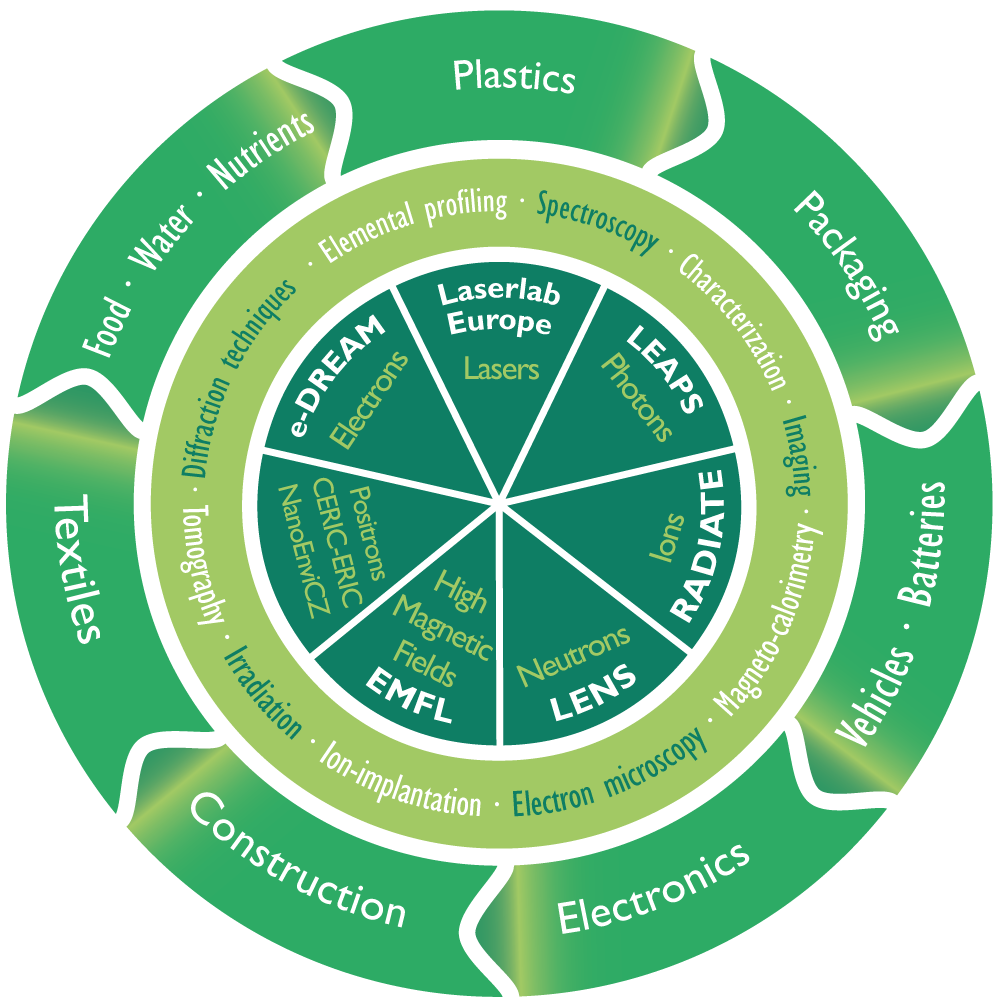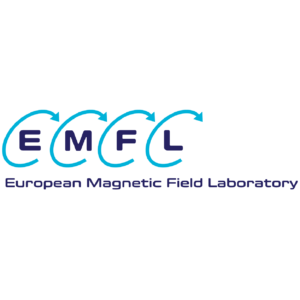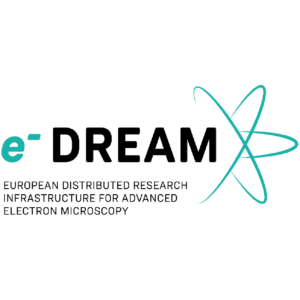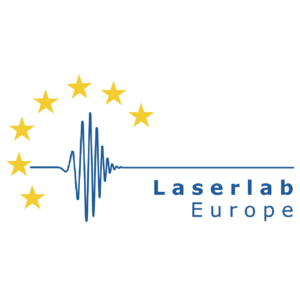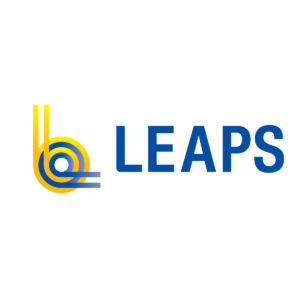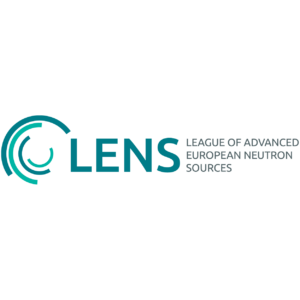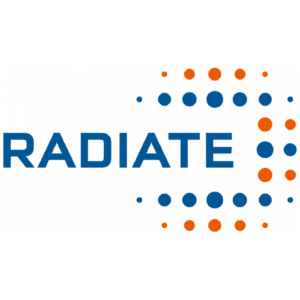ReMade@ARI (REcyclable MAterials DEvelopment at Analytical Research Infrastructures) is funded by the EU Commission’s Horizon Europe programme and co-funded by UK Research and Innovation (UKRI) and by the Swiss State Secretariat for Education, Research and Innovation.
The project commits to leverage the development of innovative, sustainable materials for key components in the most diverse sectors, such as electronics, batteries, vehicles, construction, packaging, plastics, textiles and food on an unprecedented level.
The overarching vision of the ReMade@ARI consortium is to make a substantial contribution towards breaking the vicious circle of shrinking resources and increasing amounts of waste, in an area in which only the consortium members possess the necessary advanced research infrastructures and the expertise to contribute.
A radical shift to the circular economy is urgently needed to cope with the challenge of finite resources decreasing at a frightening pace while the quantity of waste increases alarmingly. The European Commission’s Circular Economy Action Plan (CEAP) adopted in March 2020 has identified seven key product value chains that must rapidly become circular, given their environmental impacts and circularity potentials: electronics, batteries and vehicles, construction, textiles, food, water and nutrients, plastics and packaging. This requires substantial research on materials with a very high recycling capability while exhibiting competitive functionalities.
In ReMade@ARI, the most significant European analytical research infrastructures join forces to pioneer a support hub for materials research facilitating a step change to the Circular Economy. ReMade@ARI offers coordinated access to more than 50 European analytical research infrastructures representing a broad landscape of facilities constituting which constitutes an unprecedented offer for the user communities.
The project provides scientists who are working on the design of new recyclable materials with analytical tools that enable them to explore the properties and the structure of their material in smallest details up to atomic resolution.
At the core of the consortium are six initiatives from the ARIE network:
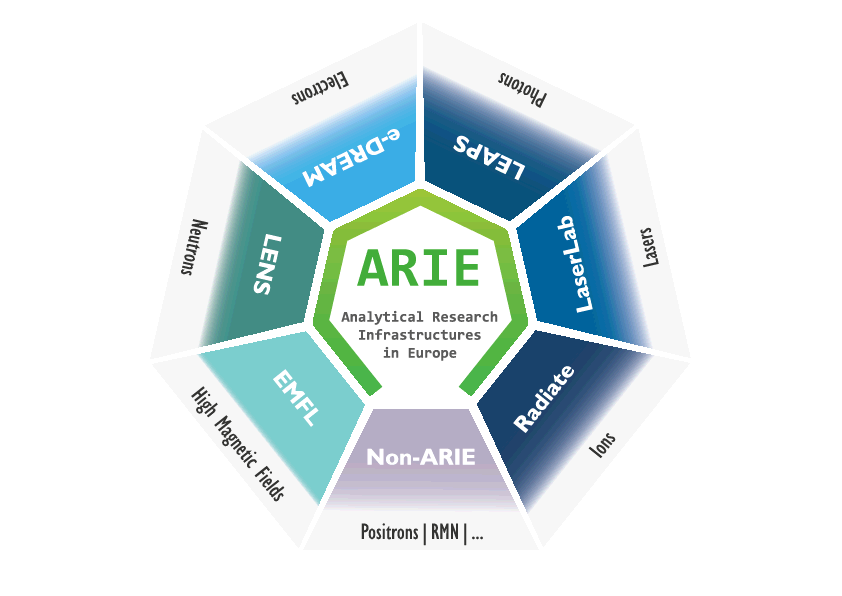
Together, the ARIEs represent the widest and most mature set of analytical research infrastructures in the world.
ARIE networks involved
European Magnetic Field Laboratory
The European Magnetic Field Laboratory (EMFL) is a consortium of the four European high magnetic field user facilities and was founded in 2015. The EMFL is dedicated to generating the highest possible magnetic fields for scientific research and to making them available to the scientific community.
European Distributed Research Infrastructure for Advanced Electron Microscopy
e-DREAM (European Distributed REsearch Infrastructure for Advanced Electron Microscopy) is a not-for-profit initiative formed to promote cooperation between European-level advanced electron microscopy infrastructure providers, collaborative research and transnational user programmes. In this project, the facilities at the Helmholtz-Zentrum Jülich (ER-C), at the Catalan Institute of Nanoscience and Nanotechnology in Barcelona (ICN2) and at the CNR Department of Physical Sciences and Technologies of Matter in Trieste (CNR) will devote a substantial part of their machine time to the support of users.
Laserlab-Europe brings together 45 leading national laser research infrastructures in 22 European countries. Jointly, they coordinate operation and R&D efforts in order to facilitate the development of advanced lasers and laser-based technologies, and promote the efficient use of advanced laser facilities by users.
League of Accelerator-based Photon Sources
The League of European Accelerator-based Photon Sources – LEAPS – is a consortium of all European accelerator-based photon sources, both synchrotron radiation (SR) and free electron laser (FEL) facilities. The primary goal of LEAPS is to actively and constructively ensure and promote the quality and impact of the fundamental, applied and industrial research carried out at their respective research infrastructures to the greater benefit of European science and society. The LEAPS RIs and their instruments provide essential tools for scientists in academia and industry in a plethora of fields such as biology, pharmacology, chemistry, physics, materials, technology and cultural heritage.
The League of advanced European Neutron Sources
The League of advanced European Neutron Sources – LENS -is a consortium working to promote cooperation between European-level neutron infrastructure providers offering transnational user programmes to external researchers. Nine of these sources have formed a strategic consortium with the aim of strengthening European neutron science by enhancing collaboration among the facilities. LENS places emphasis on the relationship between user communities and funding organisations, continuous improvement of source facilities, optimising resources between and aligning policies amongst partners – all to ensure excellence to the communities they serve.
Research And Development with Ion Beams – Advancing Technology in Europe
15 partners from public research and 4 SMEs are joining forces in the RADIATE project exchanging experience and best practice examples in order to structure the European Research Area of ion technology application.
Besides further developing ion beam technology and strengthening the cooperation between European ion beam infrastructures, RADIATE is committed to providing easy, flexible and efficient access for researchers from academia and industry to the participating ion beam facilities. About 15.800 hours of transnational access in total is going to be offered free of charge to users who successfully underwent the RADIATE proposal procedure.
In addition to ARIE facilities, ReMade@ARI brings in further non-ARIE Network partners to complete the service offering: the University of Bonn, the Danish Technology Institute, as well as CERIC-ERIC, NanoEnviCz and the mono-energetic positron source (MePS) at the ELBE Centre for High-power Radiation Sources.
Non-ARIE partners
CERIC-ERIC brings a wealth of operational experience as a multidisciplinary research infrastructure which will benefit ReMade@ARI.
The University of Bonn brings a wealth of expertise in the social study of Big Science and Research Infrastructures drawing on interdisciplinary insights from sociology, history, organizational studies and political science. Such a perspective improves our understanding of how and to what extent the unique and multifaceted services of European research infrastructures can serve and cater to the current challenges of academic researchers and industrial companies in the context of the Circular Economy.
The Danish Technological Institute (DTI) is a research and technology organization at the service of industries with 116 years of history. It is among the strongest partner in the Consortium when it comes to developing and implementing high-tech solutions in Industries. The DTI will be actively involved in the 7 Business Areas of the CEAP by bridging the gap between the ARIE and Industry via identification and translation of the Industrial challenges into solutions provided by the Consortium partners.

